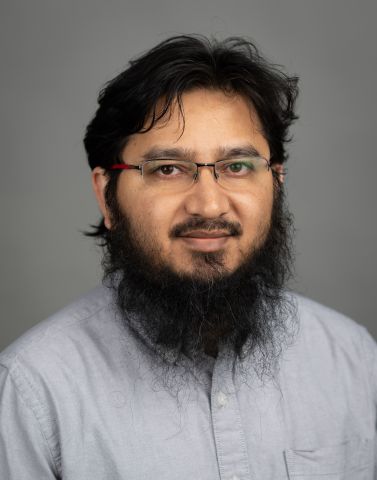
Md Shahadat Hossan, PhD
Madison WI 53705-2275

Dr. Hossan is an academic scientist in the Division of Hematology, Medical Oncology and Palliative Care within the Department of Medicine, investigating the spectrum of anticancer activity of small molecules, targeting RNA transcription and creating patient-derived cancer organoids. He works with a multidisciplinary team of scientists, clinicians and pharmacists and contributes to the therapeutic development of pancreatic and liver cancers. He has multiple skills in patient-derived 3D organoids model and small animal model (orthotopic and xenograft), DNA and RNA sequencing, CRISPR CAS-9 and imaging, which he uses to develop ex vivo tools for the prediction of targeted therapeutic responses and overcoming secondary mechanisms of resistance. Dr. Hossan has published several papers in peer-reviewed journals and has been directly involved as part of grants and awards for different research projects. He is passionate about advancing the understanding and treatment of cancer and bringing diverse perspectives and experiences to the field. Dr. Hossan is also fluent in Bengali and English and keenly interested in global health issues, especially cancer.
View Dr. Md Shahadat Hossan’s Publications on Google Scholar
Dr. Hossan is involved in the therapeutic development of pancreatic and liver cancers. He is working on a project to develop ex vivo tools for predicting targeted therapeutic responses and overcoming secondary resistance mechanisms. The work also investigates the spectrum of anticancer activity of drug candidates to identify molecular mechanisms of action, imaging, as well as patient-derived cancer organoid banking, synthetic organoid cultures and targeting RNA transcription. He is also involved with projects such as next-generation sequencing, broad expression profiling, high-throughput screening, advanced microscopy, and animal models.